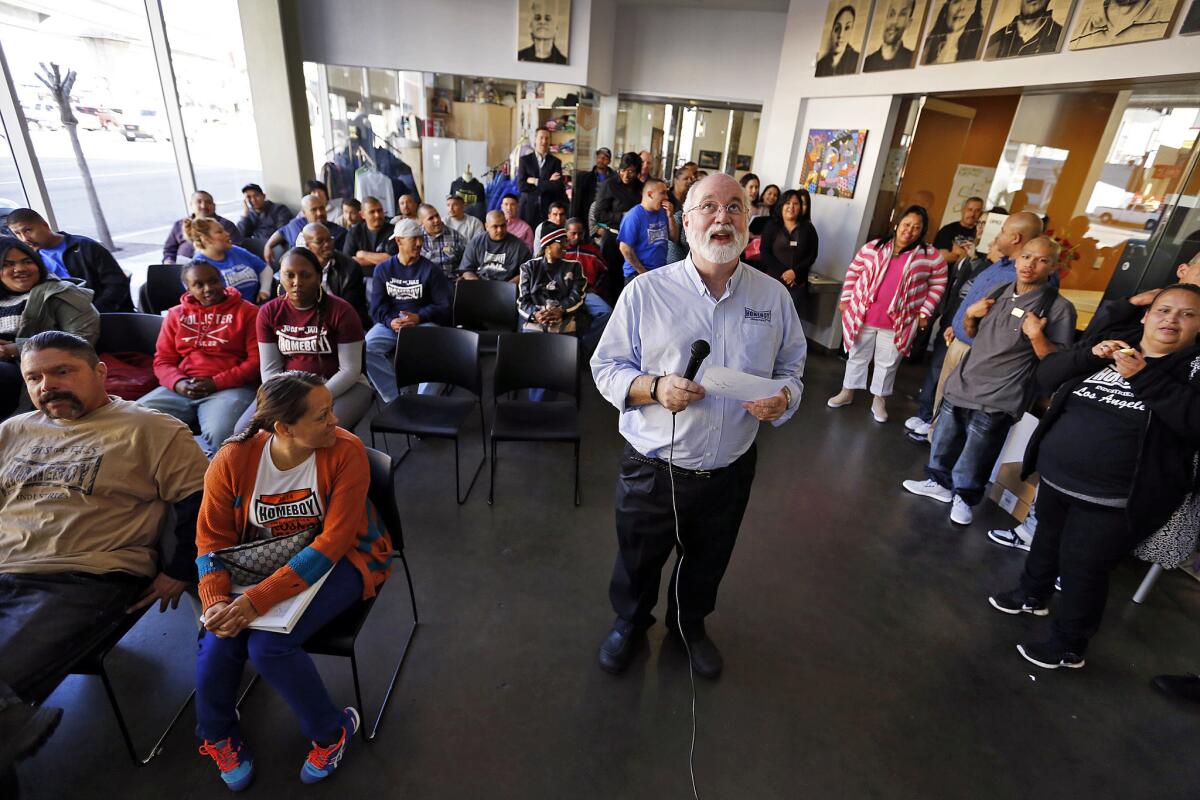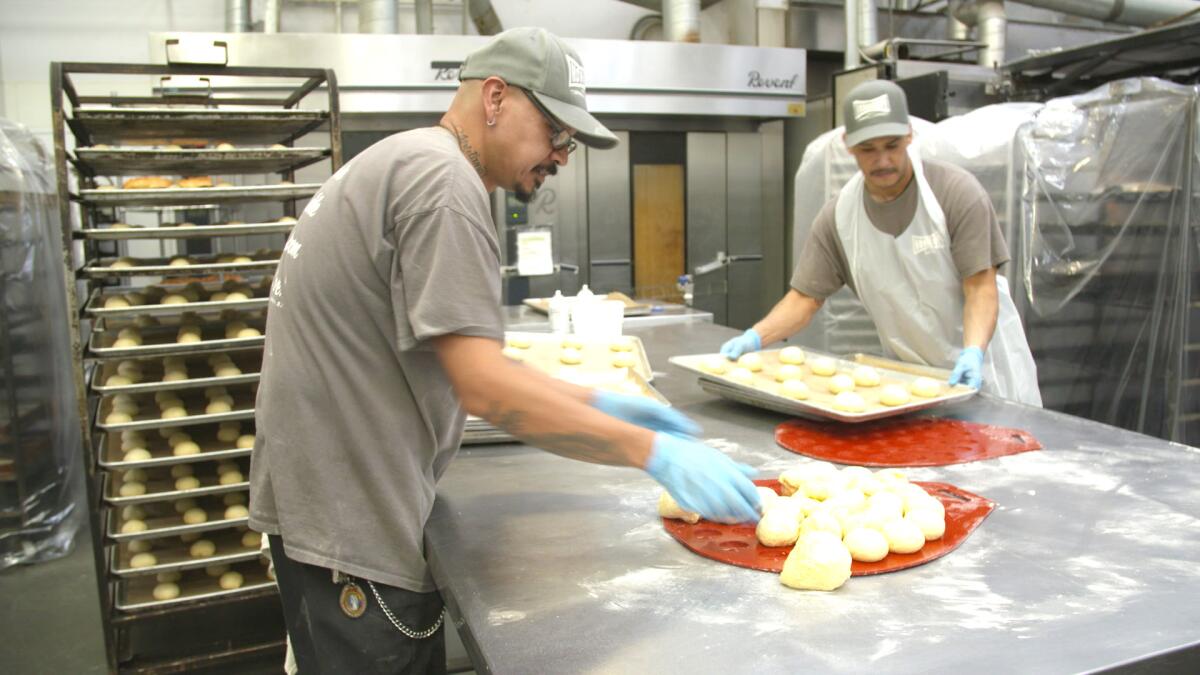Inside Homeboy Industries: 5 things to know about Gregory Boyle and ‘Barking to the Choir’

- Share via
After three decades of existence, Father Gregory Boyle’s Homeboy Industries has grown from a small parish jobs program in one of L.A.’s poorest neighborhoods into a sprawling, multifaceted social enterprise and food service operation.
Consider the numbers: There were 43,777 tattoos that Homebody Industries removed last year from former gang members trying to turn their lives around, and 26,000 people who attended education classes there. Of the 492 participants in Homeboy’s full-time training program, 80% said theyhave reunited with their children since joining, according to the nonprofit’s 2018 annual report.
Boyle’s book “Barking to the Choir,” a sequel to his 2010 bestseller “Tattoos on the Heart,” is a collection of vignettes depicting the struggles and successes of the former gang members and inmates who walk through the doors of Homeboy headquarters in downtown Los Angeles.
The Homeboy founder joins the Los Angeles Times Book Club on Dec. 16 for a breakfast conversation with author Héctor Tobar and tours of Homeboy Industries. (The event is sold out.)
Here are five things to know about Boyle, his book and his life’s work.
Boyle was influenced by his experiences in Bolivia. After being ordained as a Jesuit priest in 1984, he went to South America, ostensibly to learn Spanish. But living and working in an impoverished country, where each day he waited in line at a bakery for a ration of bread, changed Boyle’s career direction. He subsequently turned down a position in an upscale campus ministry in the United States. Instead he asked to be assigned to the poorest place available. That turned out to be Dolores Mission parish in Boyle Heights. “We had the highest concentration of gang activity in all of Los Angeles,” he said in a 2017 interview with Terry Gross on National Public Radio. “You could bury your head in the sand, or you could roll up your sleeves.”

Homeboy industries has developed nine separate business enterprises. Those businesses include a 24/7 bakery, silkscreen and embroidery business, restaurants, a grocery operation and a recycling business. You’ll find the Homeboy Diner at Los Angeles City Hall, Homeboy Café and Bakery at the LAX American Airlines Terminal and Homegirl Café at the organization’s headquarters near Chinatown. Homeboy goods are sold at farmers markets across the area. “I’d like to think that if Jesus had more time on this earth, he might well have explored the entrepreneurial,” Boyle writes in “Barking to the Choir,” playfully envisioning ventures ranging from the Tax Collector’s Café to the Ritually Impure Maintenance Crew.
Boyle has seen the terrible cost of gang violence, but it hasn’t made him cynical. He says he recently buried his 231st young person killed as a result of gang violence. In “Barking to the Choir,” Boyle recalls the victims as “kids I loved, often killed by kids I love.” He’s often asked whether that sorrow has caused him to doubt his faith, a question that he says he finds puzzling. “I’m never inclined to see God as an accomplice,” he writes.
A mixed metaphor can convey a powerful new idea. Boyle got the title of his second book from an offhand comment by a gang member turned bakery-van driver, who conflated the expressions “barking up the wrong tree” and “preaching to the choir.” When Boyle thought about what the man had said, he saw that the phrase expressed a larger truth. Boyle explains that the “choir”— those gang members who are repenting their sins and looking for a kinder, more compassionate way of life — need to avoid being lulled into the complacency of accepting the world as it is. Instead they should aim to join in “a new model that topples the old order, something wildly subversive and new.” (Here’s a Discussion Guide to “Barking to the Choir.”)
Boyle rejects the notion that his organization coddles criminals. As his book details, the gang members who come to Homeboy Industries for help are interested in abandoning crime and changing their lives but not all succeed. Nevertheless, as Boyle prerviously told the Times, “I don’t ever want us to be terrified of tarnishing our reputation or wondering, ‘What if one of our clients turns around and does something awful?’ It’s happened. But I don’t think a drug addict relapsing reflects in any way on a good rehab.... Relapse happens, especially when you’re dealing with folks who are frankly the least likely to succeed based on their own pasts and difficulties. We can work with the most likely to succeed. [But] I’m not interested in that.”
Sign up for the Los Angeles Times Book Club newsletter to stay in the loop about upcoming events for 2020.
More to Read
Sign up for our Book Club newsletter
Get the latest news, events and more from the Los Angeles Times Book Club, and help us get L.A. reading and talking.
You may occasionally receive promotional content from the Los Angeles Times.






